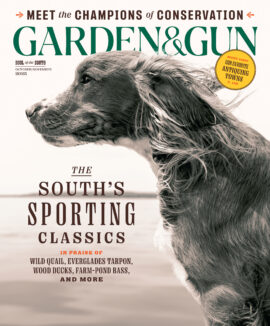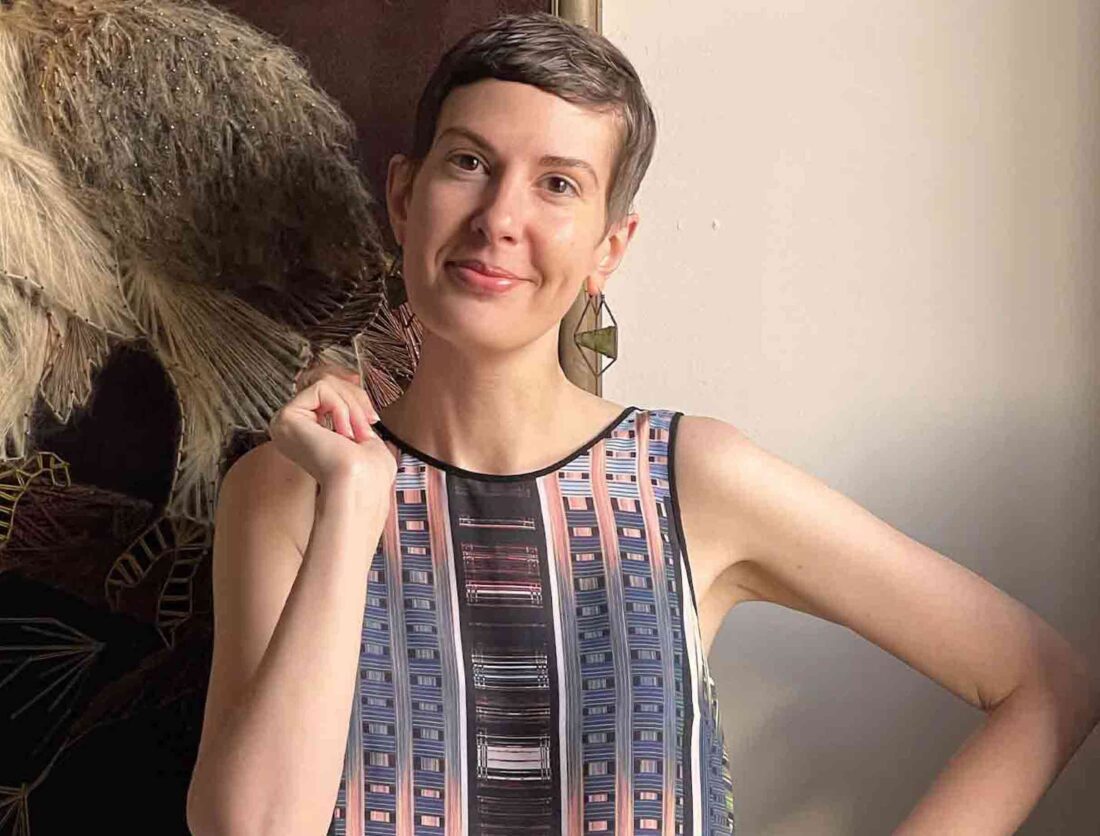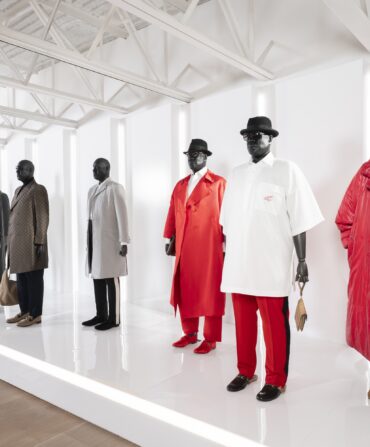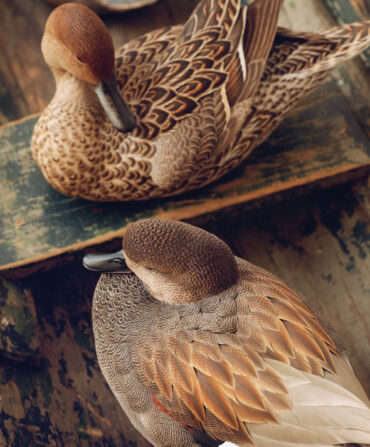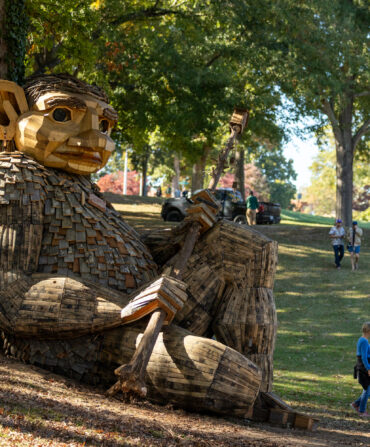The writer Patricia Lockwood revels in being unconventional. She first splashed on the literary scene in the 2010s via her zany Twitter poems and has gone on to become a Booker Prize finalist for her novel No One Is Talking About This (2021) and a contributing editor of the London Review of Books—all without a college degree, much less an MFA.
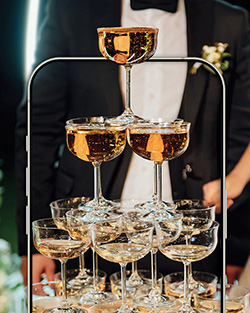
When listening to Lockwood narrate her books, as I did for her powerful Thurber Prize–winning memoir Priestdaddy (2017) and her most recent novel, Will There Ever Be Another You (newly released), her writing voice and her voice-voice meld indistinguishably. Her words are shellacked with her impish, hyper-observant, hilariously irreverent self, her tone simultaneously deadpan and profound. In this latest book, she offers fever-dream reflections on a global pandemic and seems to enjoy the fact that her readers (or listeners) may be scratching their heads, wondering where she’ll go next. You get the sense that she, too, may be wondering the same. “I am presenting the experience, and I write experimental books,” Lockwood says.
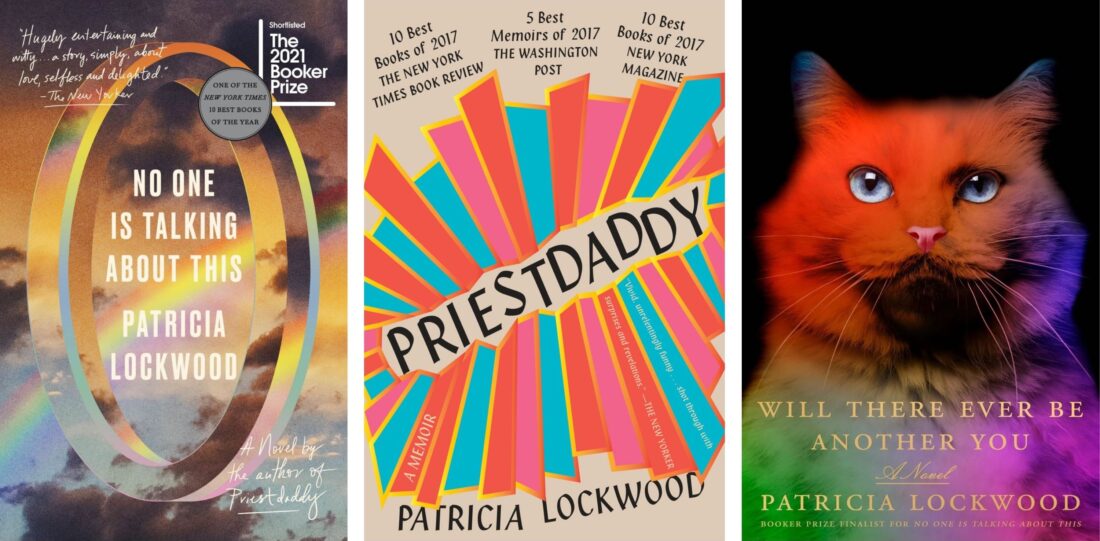
Lockwood is a poet at heart, and her deliciously lyrical prose shines in this latest autofiction account of a writer who loses her ability to write and make sense of the world due to Covid’s mysterious aftereffects. Lockwood herself still deals with Long Covid symptoms from a bout with the illness early in the pandemic. The book feels both whimsically nonsensical and deeply serious, and it turns out, that’s what a conversation with the Savannah-based author feels like, too. Lockwood can turn a phrase and capture the world’s absurdity, its beauty and heartbreak, like no other, and now that she has talked her husband into letting her add a metalsmithing blowtorch to her creative arsenal, all bets are off. We asked her about that, her new book, and her life in Savannah as she prepares for an upcoming appearance at the Charleston Literary Festival in November.
You kept journals during the height of your illness, often writing on benches in Savannah’s Madison Square, and “everything goes in,” you’ve said. To me, Will There Ever Be Another You feels similar, like a stream-of-fuzzy-consciousness collage of observation and of paying attention. Did you have a sense when you were making notes during this crazy time that this might be workable material?
I started with writing “The Changeling” and a couple of shorter pieces, like “Presence” and “Be-ing A-live” [now chapters in the new novel]. I was proving to myself, You can do this. You can write a couple pages. You used to know how to do this. So yes, I had notebooks where I collected all these observations, these refrains that I was experiencing. And what you say about everything going in, that was where I arrived for this novel—that everything goes in. My fear of the floorboards. My sense of being totally unmoored. There’s always some amount of collage and assemblage in my work, especially toward the end where I’m like, Where does this go? but more so with this book because I wanted to represent the pandemic experience as faithfully as possible. It’s a book about madness, or the state of being inside the whirlwind, so I’m not going to write that in a voice that is, “Hey, everything was normal and regular.”
Tell me more about the jig-sawing process. Did your editor help you tease out the thread?
My editors have largely always left me alone. I worked with Paul Slovak for Priestdaddy and No One Is Talking About This, and he’s like this seven-foot-tall, really calm grasshopper, and he was just perfect. He would drop a line that would ring in my head and I’d be able to do something with it. But typically, I discover what my books are as I go. I probably filled maybe seven notebooks in preparation for this one, so there was no dearth of material. It’s just a matter of, you know, at the eleventh hour, this anecdote goes here, and hey, here’s the through line I’ve been looking for—it’s been present all along. So, yeah, my books kind of uncover themselves.
After “being born in a trailer in Indiana and raised in all the worst cities of the Midwest,” as you say in Priestdaddy and in your bio, you and your husband, Jason, chose Savannah as your home. Why Savannah?
We’ve been there on and off about ten years and, in that time, have lived all over the downtown district. We’re now down in Starland. I love living in a place where art is happening all the time. When I see students walking by with their huge portfolios, I feel like I’m part of something. I also love that because Savannah is art-oriented and the literary scene is a bit more diffuse, people don’t necessarily know who you are. I like walking around and feeling like a free citizen of this place. It’s great getting to do your own thing incognito. And Savannah, well, it’s just one of the most beautiful places that I’ve ever been to. When I travel somewhere, like say I’m in Belgium and I’m loving this beautiful Belgian landscape, and then I come back home and drive past these majestic trees and I just think, there’s no lovelier place on Earth. It’s always a good homecoming.
I understand you’ve taken advantage of SCAD and Savannah’s arts community to learn some jewelry making, which is referenced in this new book.
Making jewelry is something I’ve done for twenty years or so, but more recently I took metalsmithing classes at Savannah’s Cultural Arts Center, which is where I held my official book launch earlier this month. And since then, I’ve been trying to talk Jason into getting a blowtorch, but he’s refused, saying, “No, that’s dangerous. My wife is going to set our house on fire,” and I’m like, “No, I won’t. Trust me. Let me have my torch.” So he finally relented and I got my torch, and now I’m really happy.
What else makes you happy? What’s your perfect day in Savannah?
We’ve recently begun riding an e-bike with a baby seat on the back, and I’m the baby. I love it, we can ride everywhere. We ride all the way downtown, ride over to Thunderbolt, we can ride right along the waterfront. So lately we’ve just been trying to tour all around town, looking at things from a squirrel’s eye view. It’s perfect—Jason does all the work, and I’m being conveyed all around. It’s like being on a float essentially, and I’m the celebrity, waving my little hand. So yeah, my perfect day is getting my Foxy juice in the morning (Foxy Loxy Café), then getting to see my town from the back of a bike, hitting up the bookstores, and then enjoying a nice dinner at one of the great spots in our neighborhood, like Bronchu’s or Late Air.
You’ve described this novel as a pineapple or a chandelier: “a revolving object that you’re seeing all sides of at once.” Charleston fully embraces pineapples (the big Pineapple Fountain) and chandeliers. What are you looking forward to at the Charleston Literary Festival?
I have great childhood memories of Charleston. My dad was in the Navy before he became a priest, so we visited there when I was younger. He likes any sort of porch or waterfront city, so Charleston was perfect. I have fond memories of eating oysters with my parents—we probably went to Hymans, very old school. And it’s still a place Jason and I enjoy for day trips. I’m excited to be at the festival for my first time. I hear Joyce Carol Oates will be there, and there’s a line in the novel when the narrator, descending into delusion, says, “It’s like Joyce Carol Oates is trying to start a feud with me…does everyone have this feeling?” So, yeah, come find me and Joyce, we may be feuding.
Can’t wait. I’ll referee!
On November 14, Patricia Lockwood will join in conversation with lawyer Martha McLendon at the Charleston Literary Festival. Find the full lineup of attending authors and events here.
Garden & Gun has an affiliate partnership with bookshop.org and may receive a portion of sales when a reader clicks to buy a book.

